By Chaumtoli Huq, Editor of Law@theMargins
With the dearth of jobs in Bangladesh which is propelling so many to take life threatening voyages by sea in search of work, and falling prey to abuse by human traffickers, why would the newly elected Mayor of the Dhaka City South Corporation threaten to uproot thousands of street vendors who earn a living by selling clothes made by local garment owners, toys, fruits and other essential knick-knacks. Today, they arrived with the armed police, bull dozer, bull horn and hammer to remove the street vendors’ stalls or hawkers as they are commonly referred to in South Asia from the street in the name of beautification of the city. If they don’t move, the officials were prepared and in some instances did demolish stalls.
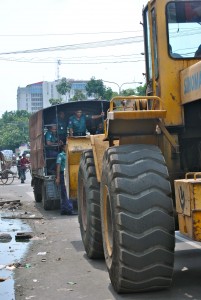
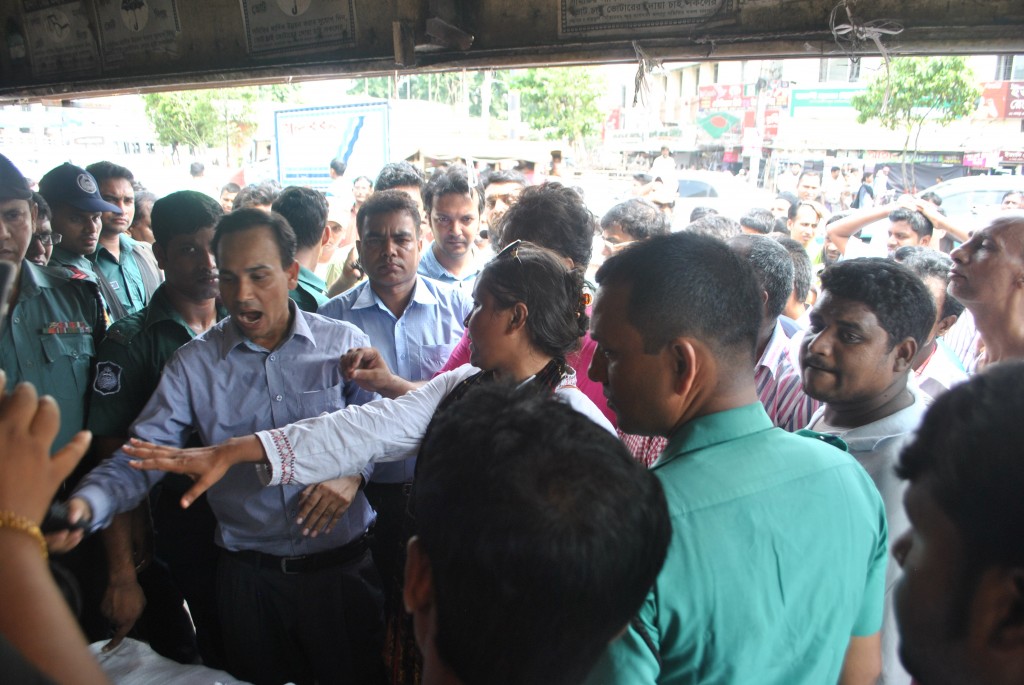
Workers scrambled to collect their goods, which if damaged would create an even greater loss, including the loss of income from today. Thanks to the organizing of the Bangladesh Hawkers Union, the leaders were able to temporarily negotiate with the magistrate who came to execute the removal to allow vendors to stay on the side-walk but gave vendors half hour to move any part from the streets. While the matter was temporary resolved in hawkers favor today, there are many more demands by the hawkers that need to be meet to ensure their livelihood.
The Hawkers Union began organizing around 2005, and began more to press demands on behalf of vendors in 2013. Then, vendors were caught in a cross-fire of police firing at Hefazot Islamic group protest. As a result of their advocacy, some of the vendors were able to get some compensation for damages suffered. Two of the leaders from the Union are Abdul Majeed and Abdul Hassen Kabir.
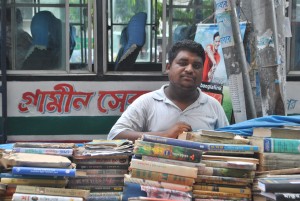
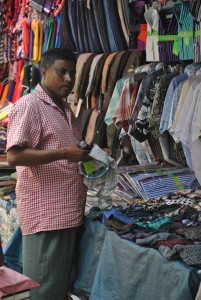
Typical of many hawkers, Abdul Kabir comes from a poor farming family and began selling shirts to support his family. He tried to obtain a office worker job but without money or connections those positions are hard to come by. He said: “It is very hard to find jobs in Bangladesh. I am a farmer’s son.” Without money or connections, there are no jobs for poor people in Bangladesh.”
During the recent Dhaka Mayoral election, the hawkers asked the candidate Sayeed Khokhon who covers the areas where the vendors sell their ware what is his position on hawkers. Then, he promised to protect their rights, but soon after his victory, he announced that he would remove all street vendors from Dhaka.
In protest of this announcement, on May 31, workers mobilized and lead a mass action of over 5000 hawkers demanding that they be allowed to earn a living, or alternatively, if they are asked to move to another location, for a clear plan to be laid out on a safe relocation. They also asked for their economic contributions to the city to be acknowledged and respected. “Where the government can’t give us jobs, Kabir said, “we are working.” “I want to live like a person. I want my rights as a human being.”
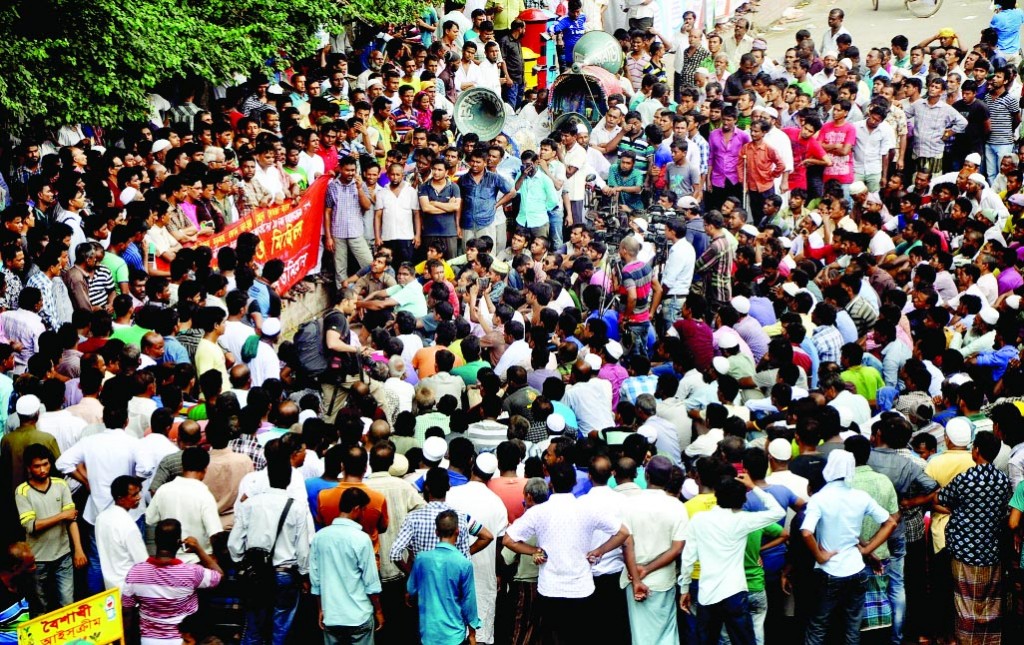
In response to the protest, the Mayor said he would only remove vendors who obstructed the street. Despite this promise, bull dozers and City officials damaged some vendors on the sidewalks, until the organizer intervened for a reprieve.
Hawkers experience varied level of abuses from police, local thugs connected to political parties, and city corporation staff all of whom demand payments, bribes in exchange for non-harassment. One paper estimated that the amount of money extorted from street vendors each year was about 850 crores. Their work and income is insecure, yet, they make a valuable and significant contribution to Bangladesh’s local economy. For example, clothes that are made locally but are not export oriented are sold by these vendors .
What Bangladeshi vendors or hawkers experience here is not uncommon to the abuse I have heard from vendors around the world including in South Asia, Africa and United States. In New York, vendors experience harassment from police, and often are shoved aside to “clean New York’s streets.” Making the city livable, gentrification are similar reasons given my authorities to disrupt vendors.
Speaking to vendors today, all of them said, that all they want is to be able to earn a livelihood for their families. Where jobs are hard to come by, displacing and destroying the vendors livelihood seems like a misguided city policy.



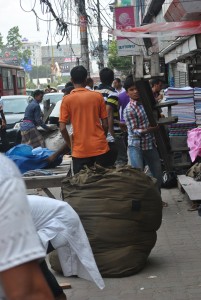
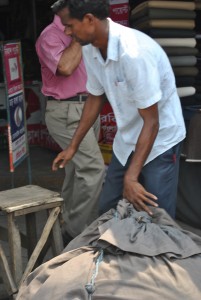
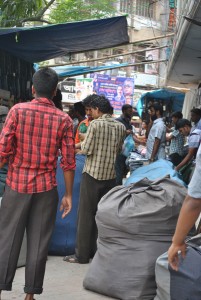


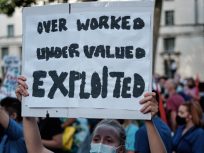



I respect your work.